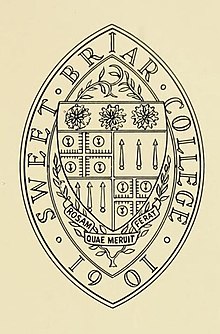Founded in 1901, Sweet Briar College is a small-scale liberal arts college nestled in the idyllic foothills of the Blue Ridge Mountains in Sweet Briar, Virginia. Historically women's college, Sweet Briar is renowned for providing its students with a personalized and engaging educational experience on its 3,250-acre campus, one of the most expansive in the nation for a college of its size. With a focus on preparing women to become leaders in their chosen fields, the college offers a range of undergraduate degrees across the arts, sciences, and humanities to a tight-knit community of learners.
Sweet Briar College distinguishes itself with several unique aspects that contribute to its particular identity. For instance, it houses a nationally recognized engineering program tailored specifically to women, one of only two such programs in the United States. The Margaret Jones Wyllie '45 Engineering Program stands as a testament to the institution's commitment to closing the gender gap in STEM fields. Additionally, Sweet Briar's emphasis on sustainability is practically woven into the curriculum and campus life; its expansive campus includes two lakes, riding trails, and an equestrian center, alongside academic programs dedicated to environmental science and agricultural management.
The achievements and positive contributions of Sweet Briar College are multifaceted. Its equestrian program is widely celebrated, often touted as one of the premier riding programs in the country with a storied history of competitive success. Moreover, the college's alumnae network is particularly active, fostering a web of support that extends far beyond graduation. This network not only aids current students in professional development but also frequently contributes to the college's community outreach initiatives, such as environmental conservation efforts and educational workshops that benefit the wider Sweet Briar area.
Despite its idyllic setting and specialized programs, Sweet Briar College has faced challenges akin to many small, liberal arts colleges. In 2015, the college grappled with financial difficulties that nearly led to its closure. This event underlined the constant struggle for smaller institutions to secure funding and maintain robust enrollment numbers in a competitive higher education landscape. Furthermore, being a predominantly women's college, it must continually adapt to changing attitudes and demographics to appeal to prospective students. Sweet Briar's relatively remote location may also deter students who prefer a more urban college experience, necessitating a concerted effort to highlight the advantages of its picturesque environment and close-knit campus life.



